Service learning embodies the spirit of applying knowledge to serve others and contribute to society. The University of Macau (UM) is committed to nurturing well-rounded citizens and encourages students to engage in community service projects outside the classroom. In this issue of My UM, we explore the service learning opportunities UM provides for undergraduate students through community and peer education, experiential teaching, and student organisations. We also feature interviews with three students who participated in different service activities. They share the experiences and insights they gained through community service, and how they contribute positive energy to society.
Building a platform for service learning
UM actively promotes whole-person development in undergraduate education. Since its relocation to the new campus in 2014, the university has implemented a residential college system that serves as an experiential learning platform, nurturing students’ civic responsibility and other important abilities. The platform features a service learning model which provides students with opportunities to contribute to the community through the planning and organisation of various activities. UM’s ten residential colleges regularly organise a wide range of service-learning programmes. This approach, which incorporates observation, reflection, and hands-on experience, enables students to fulfil their social responsibilities while enhancing their learning experience.
As each college brings together students from various disciplines and cultural backgrounds, they can leverage their strengths to organise different community service activities. After years of exploration, the ten colleges have developed distinct characteristics in their community service initiatives and established mechanisms to encourage students’ voluntary participation. Students are proactive in tackling social issues, including promoting environmentally friendly lifestyles, improving education in remote areas, and addressing the mental well-being of the elderly. Students’ care for the community, especially disadvantaged groups, is evident through their provision of community services in mainland China, Macao and overseas.
Diverse and sustainable community services
UM’s residential colleges are effective platforms for service learning. They connect students with the community and expand sustainable community services. For example, members of Henry Fok Pearl Jubilee College (HFPJC) travel to remote areas in mainland China every year to conduct educational activities. They have provided teaching services for more than 400 classes in 13 schools in different provinces—Hainan, Guizhou, Jiangxi, Yunnan, Hunan, and Guangxi—benefiting more than 20,000 primary and secondary school students. HFPJC members also collaborate with international social enterprises to integrate knowledge of health, hygiene, and environmental protection into their teaching.
Similarly, Chao Kuang Piu College organises a series of activities every year for children with Down syndrome, providing warmth and companionship to these children and their families. Cheng Yu Tung College, in response to the country’s call, has held fundraising events for a rural revitalisation programme in Xiushui county, Jiangxi province. Choi Kai Yau College (CKYC) has also organised members to visit nursing homes to interact with the elderly. As CKYC College Master Prof Janny Leung says, learning is not limited to the classroom; community service also provides students with a rich learning experience.
Exploring oneself through service
Serving as a learning platform for practicing community and peer education as well as knowledge integration, UM’s residential colleges aim to develop well-rounded, knowledgeable, and proactive student citizens through experiential learning outside the classroom. The colleges consider service learning crucial for students’ personal growth. They offer various community service programmes that allow students to explore areas of interest aligned with their individual talents.
This commitment to service learning is driven by the ultimate goal of guiding students’ self-reflection. For example, Dr Chan U Wai, residential fellow of the Stanley Ho East Asia College (SHEAC), regularly organises community tours to expose students to the diverse facets of people’s lives. Jasmin Kam, a second-year student in the Department of Chinese Language and Literature and a member of SHEAC’s volunteer team, shared that participating in the tours helped her understand the composition, cultural context, and history of Macao’s communities. She also gained a first-hand understanding of the needs of different communities, which allows her to organise volunteer activities that are more relevant to people’s daily lives. ‘The tours also taught me to approach social issues from multiple perspectives and mobilise the resources around me to improve the community,’ shared Kam.
Fulfilling social responsibility
In addition to the residential colleges, UM faculties also emphasise social responsibility in programme curriculums. UM curriculums focus on developing students’ ability to identify and solve community issues, making teaching more practical and honing student skills students. For example, the Faculty of Education (FED) has established a STEAM (science, technology, engineering, arts, and mathematics) Education Service Team to train students as seed teachers and promote STEAM education at the community level in alignment with the government’s ‘Education for Macao’ policy.
The service team conducts STEAM workshops at the Macao Science Center every month for children aged 6 to 9 to ignite their interest in science. Richard Goh, a third-year FED student and member of Ma Man Kei and Lo Pak Sam College, is the founding leader of the service team. He has served at the science center for more than a year. During the workshops, he noticed that children typically have an attention span of only 8 minutes. Despite the short attention span, he is not frustrated, as he firmly believes, ‘There is no boring knowledge. It all depends on how we teach.’
To ensure the quality of STEAM education, the service team’s teaching plans are reviewed by FED professors. Goh emphasised that lesson preparation is a time-consuming process. To effectively convey a concept to children, multiple repetitions in various engaging ways are necessary to stimulate their curiosity in science. Goh explained, ‘Preparing for a 40-minute workshop usually takes more than ten times that amount of time. Our focus is on nurturing children’s observation skills and encouraging them to actively explore problems with interest. We hope to stimulate their scientific thinking.’
Strengthening community cohesion
UM currently has more than 100 student organisations and university teams, allowing students to demonstrate their strengths beyond their majors, develop their potential, and independently organise and participate in social service activities, thereby contributing positive energy to the community. For example, the mission of the UM National Flag Team, the first student national flag team among Macao public higher education institutions, is to promote national flag culture to the community. The team pays frequent visits to primary and secondary schools to make presentations about national flag culture and provide training in flag-raising ceremonies. These initiatives enhance the national identity of young people in Macao.
Kou Nga Iao, a third-year student in the Department of Communication and a member of Ma Man Kei and Lo Pak Sam College, is the deputy team leader of the UM National Flag Team. She visits the Affiliated School of the University of Macau every week to provide professional flag-raising training for primary school students. Kou acknowledged the challenge of capturing the attention of energetic and playful young students, but over six months, she witnessed their transformation. ‘They can now stand in a military posture, march with precision, and hold the flag with respect,’ Kou shared.
Kou continued, ‘In addition to teaching students how to properly raise, lower, fold and display the national flag, we explain to them the protocol, etiquette, and the significance behind each movement. The protocol and etiquette embody respect for the national flag and reverence for the country. Flag-raising training helps cultivate students’ self-discipline and deepens their love for the country and Macao, which, in turn, contributes to the establishment of stable community cohesion.’
Developing students’ leadership skills
After years of implementing service learning education, UM’s residential colleges stress that while the primary goal of service learning is not necessarily to cultivate leaders, it undeniably enhances students’ leadership abilities. These skills include self-confidence, effective communication, interpersonal relationships, teamwork, and problem-solving. Dr Jiang Yi, associate master of Henry Fok Pearl Jubilee College, highlights that service learning, which combines community service and civic education, plays a crucial role in fostering students’ social responsibility.
Dr Jiang continued, ‘The process of reflection and discussion initiated by service learning serve as effective means of relearning. It enables students to translate their compassion into action and develop their leadership potential. Many students who have participated in volunteer teaching services in mainland China have later become actively involved in college student unions and other student organisations. They have become outstanding student leaders.’
Text: Kelvin U, Trainee UM Reporter Qiu Zichen, Hu JingweiEnglish translation: Bess Che
Photos: Editorial Board, with some provided by the interviewees
Source: My UM Issue 129
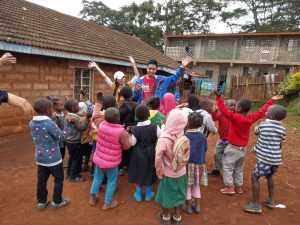
Residential colleges provide opportunities for students to practice what they have learned through service learning
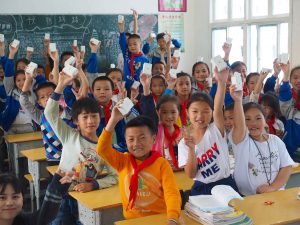
UM members travel to remote areas in mainland China every year to conduct educational activities
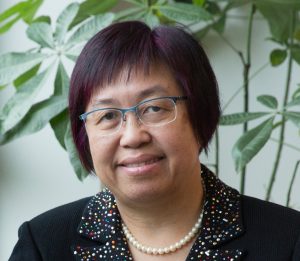
Prof Janny Leung
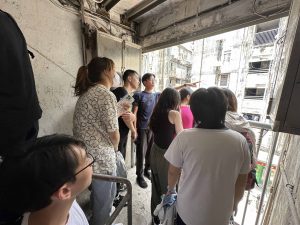
Dr Chan U Wai organises community tours to deepen students’ understanding of the community
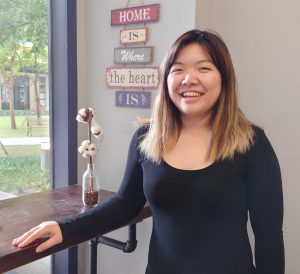
Jasmin Kam
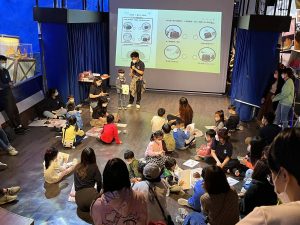
UM students conduct regular STEAM teaching activities at the Macao Science Center
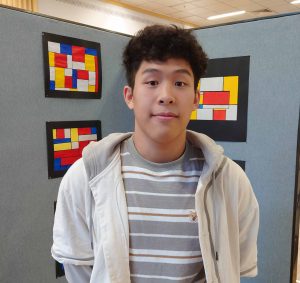
Richard Goh
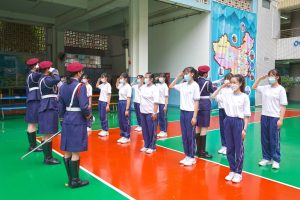
UM National Flag Team demonstrate the flag-raising etiquette to primary and secondary school students
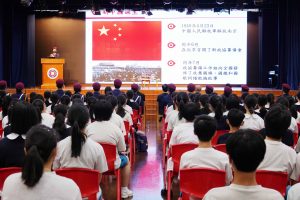
UM students give presentations on the national flag culture in local primary and secondary schools
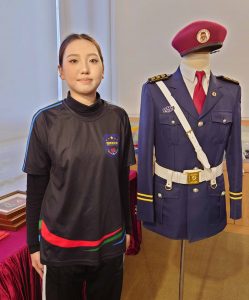
Kou Nga Iao

Dr Jiang Yi
